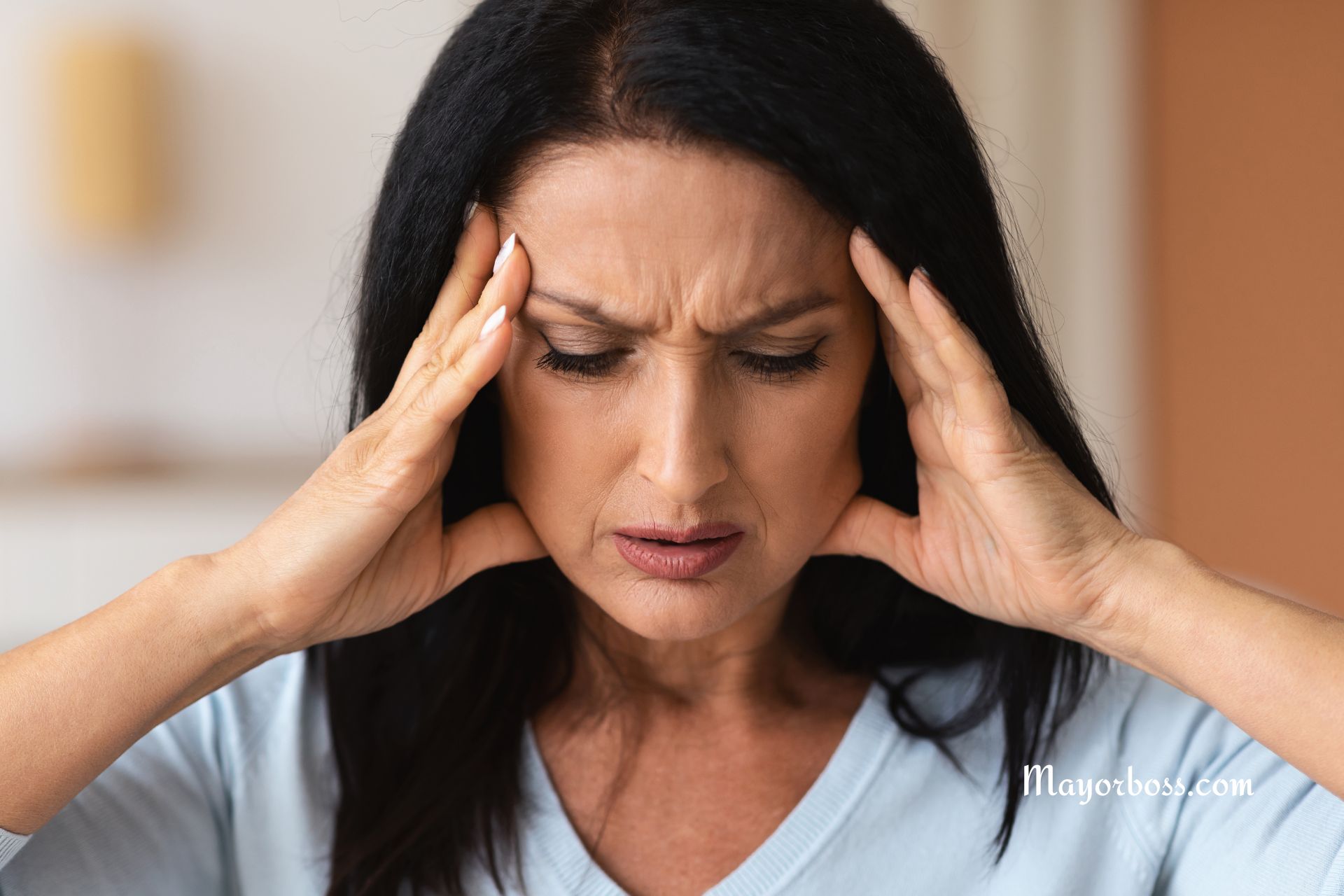Stressed or Depressed? How to Tell the Difference
It’s easy to feel overwhelmed by the fast pace and demands of life. Sometimes, it’s hard to know if what you’re experiencing is everyday stress or if it’s something more serious like depression. While both share some similarities, understanding the distinction between stress and depression is crucial for finding the right support and treatment.

Stress: The Body’s Natural Response
- What is stress? Stress is the body’s normal and healthy reaction to challenges or perceived threats. It triggers the “fight or flight” response, releasing hormones that increase heart rate, breathing, and muscle tension. This prepares you to take action and address the stressful situation.
- Common causes of stress:
- Work demands and deadlines
- Relationship problems
- Financial worries
- Major life changes (positive or negative)
- Health concerns
- Signs of stress:
- Irritability or moodiness
- Feeling overwhelmed
- Difficulty concentrating
- Headaches and muscle tension
- Changes in sleep or appetite
Depression: A Persistent Mental Health Condition
- What is depression? Depression is a serious mood disorder that goes beyond feeling sad or down. It involves persistent feelings of hopelessness, loss of interest in activities you once enjoyed, and significant changes in your energy, sleep, and appetite. Depression requires professional diagnosis and treatment.
- Common types of depression:
- Major depressive disorder
- Persistent depressive disorder (dysthymia)
- Seasonal affective disorder (SAD)
- Signs of depression:
- Persistent sadness or emptiness
- Loss of interest or pleasure in activities
- Changes in weight and appetite (increase or decrease)
- Sleep disturbances (insomnia or sleeping too much)
- Fatigue and low energy
- Difficulty concentrating and making decisions
- Feelings of worthlessness or excessive guilt
- Recurrent thoughts of death or suicide
Actual Differences Between Stress and Depression
Here’s a breakdown of how stress and depression differ:
- Duration: Stress is often temporary, linked to a specific situation. Once the stressor eases, feelings usually improve. Depression, on the other hand, is persistent, lasting for weeks, months, or even longer.
- Source: Stress arises from external factors. Depression can develop from various causes, including genetics, brain chemistry, and difficult life events. Often, depression can occur even when things seem to be going well in life.
- Intensity: While stress can be intense, it often lessens over time. Depression involves a profound and ongoing sense of sadness and hopelessness, interfering with daily life.
- Impact on daily life: Stress can make functioning difficult, but usually, you can still maintain your responsibilities. Depression significantly impairs one’s ability to work, engage in relationships, and care for oneself.
When to Seek Professional Help
If your feelings of stress or sadness have been lasting for several weeks or are interfering with your daily life, don’t hesitate to reach out to a mental health professional. They can assess your symptoms, provide a diagnosis, and recommend appropriate treatment options.
Treatments for Stress and Depression
- Managing stress:
- Lifestyle changes: Regular exercise, healthy eating, sleep routines.
- Relaxation techniques: Mindfulness, deep breathing, meditation.
- Time management and problem-solving strategies.
- Treating Depression:
- Therapy: Psychotherapy like cognitive-behavioral therapy (CBT) helps change negative thought patterns.
- Medication: Antidepressants as prescribed by a doctor.
- Combination of therapy and medication
Frequently Asked Questions (FAQs)
- Can stress lead to depression? Yes. Long-term, unmanaged stress can increase the risk of developing depression, especially if you have other risk factors.
- Can you have both stress and depression? Absolutely. Many individuals experience stress alongside depression.
- What can I do to help myself? Along with seeking professional help, self-care is essential:
- Prioritize sleep and healthy eating.
- Engage in regular physical activity.
- Connect with supportive people.
- Practice relaxation techniques or mindfulness.
Remember: Don’t struggle alone. If you’re unsure whether you’re experiencing stress or depression, seeking professional help is always the right step toward finding relief and reclaiming your well-being.
